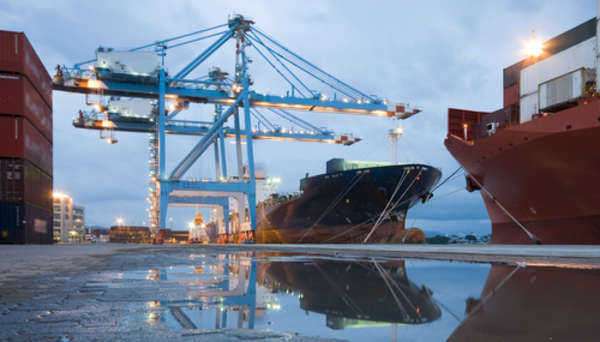
How do I find a Maritime Lawyer?
Admiralty law, also called maritime lawyer, is a highly specialized practice of law that involves regulations of commerce and activity that occur on waterways and ports. The following are involved in maritime law:
– Navigation and operation of vehicles on controlled waterways, seas, and navigable steams.
– Commerce and activities such as transportation, cruise ships, or pleasure boats that operate on regulated waterways.
– Any activities that take place on land but are directly related to regulated waterways, such as ports, security, tariffs and customs, or any other support roles.
Maritime law is not a unified body of law, but instead involves Federal, State, and even International laws to make up this area of legal practice.
What to tell your attorney
Your maritime lawyer will need to know any important details that you have that involve your case. Factual information such as locations, times, and names can be extremely important, especially considering the importance they may have on which laws and regulations will apply to your case. Maritime lawyers often evaluate cases depending on where they occur, as jurisdiction over your case may shift from state and federal government bodies depending on what waterway or what port the events took place. Above all, be prepared to tell your maritime lawyer what kind of legal services you desire and what your ultimate goals are in obtaining legal services.
Where to look for an attorney
Maritime lawyers will be found wherever maritime law is in demand. Of course, this means most maritime lawyers will be located in coastal areas or places with navigable rivers and streams. Generally, maritime lawyers work primarily in the shipping and commerce industries, so major shipping cities will often have the most experienced maritime lawyers. If you have a connection to maritime activities or commerce, a good start to finding a quality maritime lawyer will be to ask those who have used their services in the past.
This website can be a valuable tool when you are looking for maritime lawyers. Use the search function at the top of the page to search and compare different maritime lawyers in your area.
Do I need a specialist?
Maritime law is a very unique and specialized area of the law that requires focus and special knowledge. If you have a legal problem that involve maritime law, you need an experienced specialist who knows the specific regulations that need to be applied and how to get your case through the system. It is not recommended that you use the services of an inexperienced lawyer, unless you do not have any other options for representation or legal advice.
Preparing for an appointment
When you meet with your maritime lawyer, be prepared by bringing all documents and information that you have available about your case. Bring any paperwork, correspondence, or reports that involve your case. It is much better to bring too much than to not bring enough, so anything you have should be brought to be reviewed by the maritime lawyer. Be prepared to discuss all of the facts and circumstances of your case. Double check dates, names, and locations before meeting with your lawyer. The more information you provide, the more efficient your lawyer can be in providing you with legal services.
Evaluating Experience & Education
All lawyers must graduate from an accredited law school, meet character and fitness requirements, and pass the bar exam in their practicing state. However, these are the minimum requirements, and it is incredibly important that you find a maritime lawyer that has had experience working on maritime and admiralty law cases. Your lawyer should have tried similar cases as your case or should have experience working in the area of the law in which you need advice.
Personality & Values
All experienced maritime lawyers will have the knowledge to build your case, advise you of all needed information, defend any claims made against you, and properly file all legal paperwork with the proper authorities. Special knowledge of jurisdictional laws and special maritime regulations are needed in order to be a good maritime lawyer. Many qualified maritime lawyers will have previous experience working for major shipping and commercial companies, so check the background of your lawyer before hiring them for legal services.
Speak with your maritime lawyer and get an idea of their personality and ethical behavior. Organizational skills are often an important quality for any lawyer. You should also be able to get along with any maritime lawyer you hire, as you may need to have a professional relationship with him or her for months or possibly years.
Rates, Fees & Retainers
While there are different fees and rates that maritime lawyers may charge, the usual type of fees are based on hourly rates. These rates will vary by lawyer, but they will be greater for more experienced lawyers. Some maritime lawyers may charge a flat fee for specific legal services such as filing certain documents or more simple regulatory matters.
A maritime lawyer may require a retainer, which is an upfront payment needed before legal services will be rendered. This payment will be credited towards hourly work and will be deducted accordingly.
Interviewing your attorney
Ask the following questions of your chosen maritime lawyer:
– What are your fee structures, what expenses will be needed to accomplish my legal goals, and how long should I expect the process to take?
– What are your past experiences with cases similar to mine?
– What are the chances of success and what type of concessions may I need to make?
– When and how may I contact you when I need information?
– How should I contact you when I have additional information or changes in my circumstances that you need to know about?
– How will you contact me with updates for my case?
What is Maritime Law Lawyer
A maritime law lawyer will work with clients in helping guide them through the highly technical maritime and admiralty regulations that deal with activities on navigable waterways and ports. Often, the issues will involve commerce and industries, however occasionally private individuals will need help will legal issues involving pleasure boats, customs, or even maritime criminal issues. A maritime law lawyer will usually be found working for large commercial outfits but there are some that will be available for hire by private individuals. Of course, the best place to find a maritime law lawyer is in coastal cities or places with navigable waterways.








